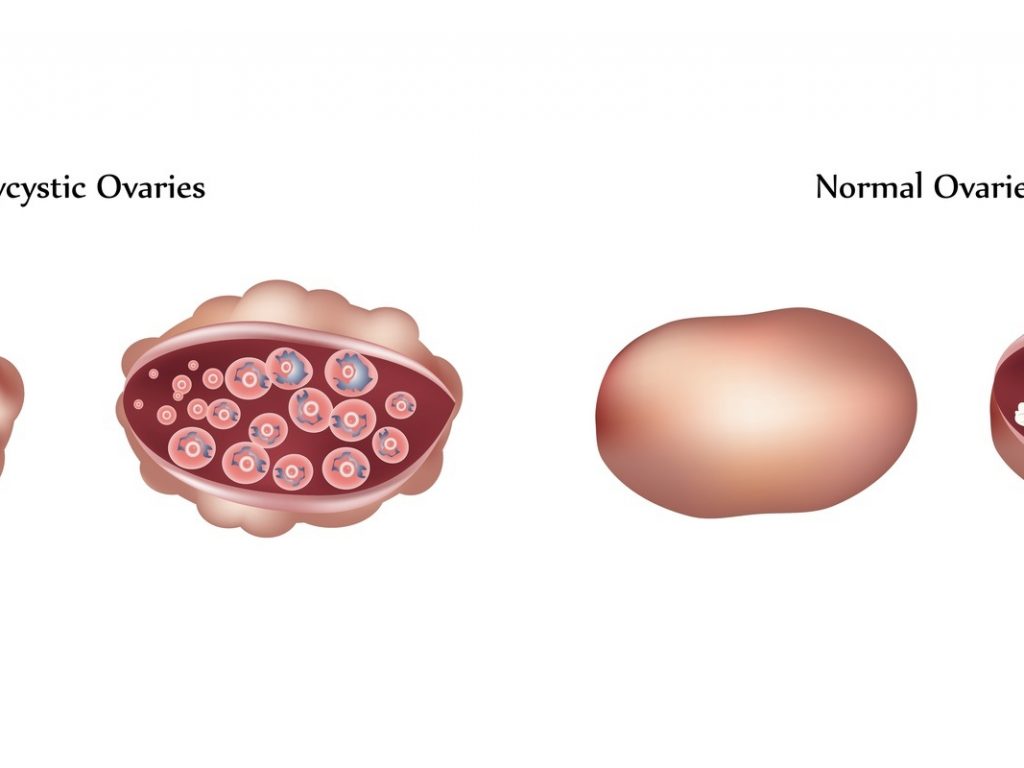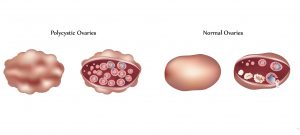Polycystic Ovaries and Polycystic Ovary Syndrome
The term polycystic ovary (PCO) refers to ovaries that contain numerous small ovarian cysts. This problem is very common and affects a quarter of all women during their reproductive years. Each ovary normally recruits more than a single follicle every month but only one usually proceeds to full maturity and releases an egg. The other follicles do not mature and usually disappear, however, they can sometimes remain as ovarian cysts and this gives rise to PCO.
PCO is often asymptomatic and does not always have a significant impact on fertility. In some cases however, the hormonal system gets out of balance causing problems with ovulation along with other symptoms. This collection of symptoms is referred to as polycystic ovary syndrome (PCOS). The symptoms can include reduced or absent ovulation, raised level of male hormones and polycystic ovaries. It is possible to have the syndrome without the appearance of many ovarian cysts, though this is not usually the case. The overall prevalence of PCOS is between 5-10% in the UK population, representing an important cause of infertility. In many cases the symptoms are mild and women don’t know they have polycystic ovaries until they begin trying to get pregnant. In other situations however, the symptoms can be very severe and distressing.
Symptoms of PCOS
PCOS is a collection of symptoms of varying severity, listed below. Not all women experience these symptoms, in some cases they are very mild or absent, while other women may experience more severe or widespread symptoms. Around half of sufferers gain weight and have excessive hair growth to some degree.
- No periods or irregular periods
- No ovulation or irregular ovulation
- Reduced fertility
- Excessive body or facial hair (hirsutism)
- Excessive or rapid weight gain
- Oily skin, acne or other skin problems
- Thinning of scalp hair
- Elevated insulin levels or type II diabetes
- Depression or mood changes
Read more about the causes of, and treatments for, PCOS…


